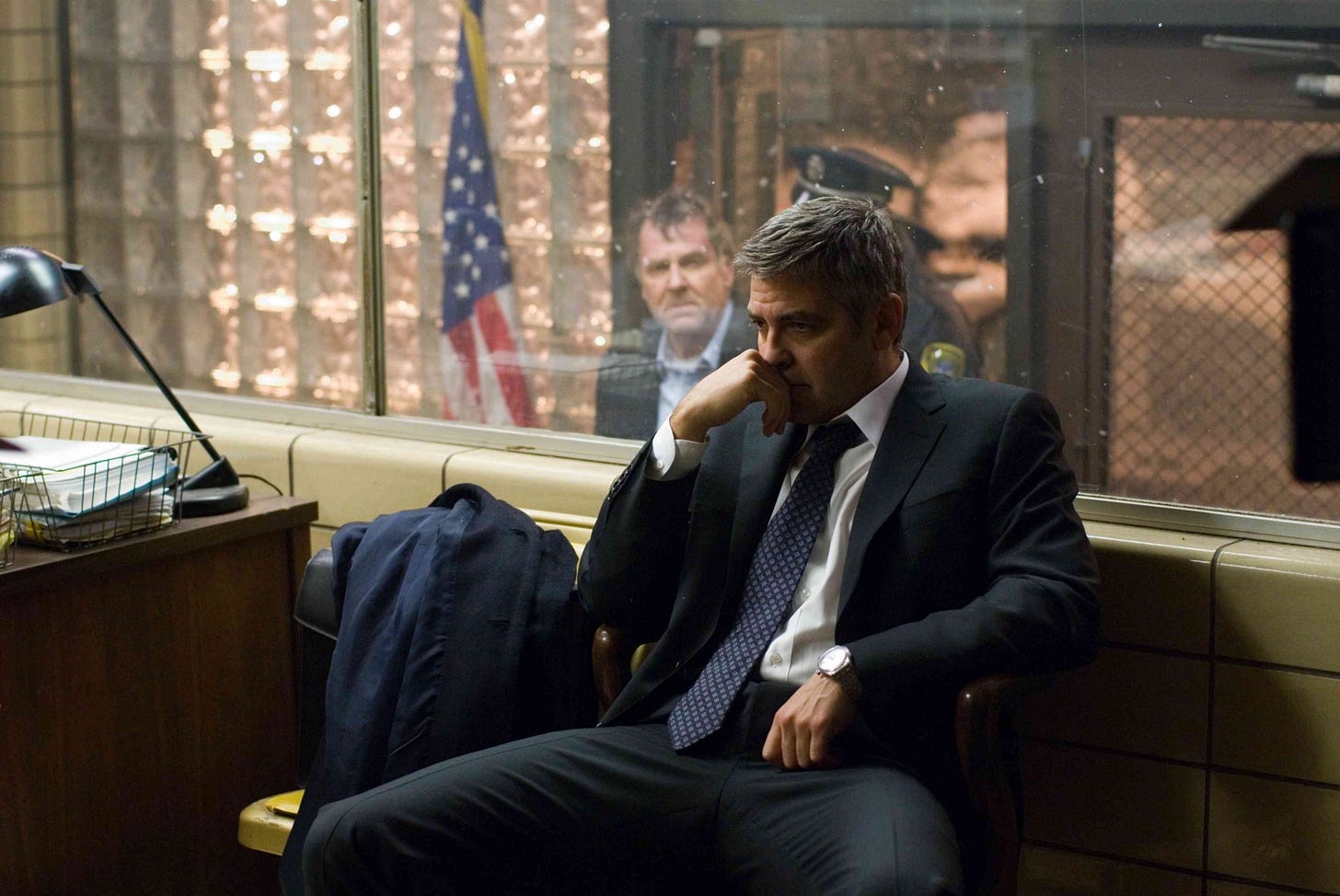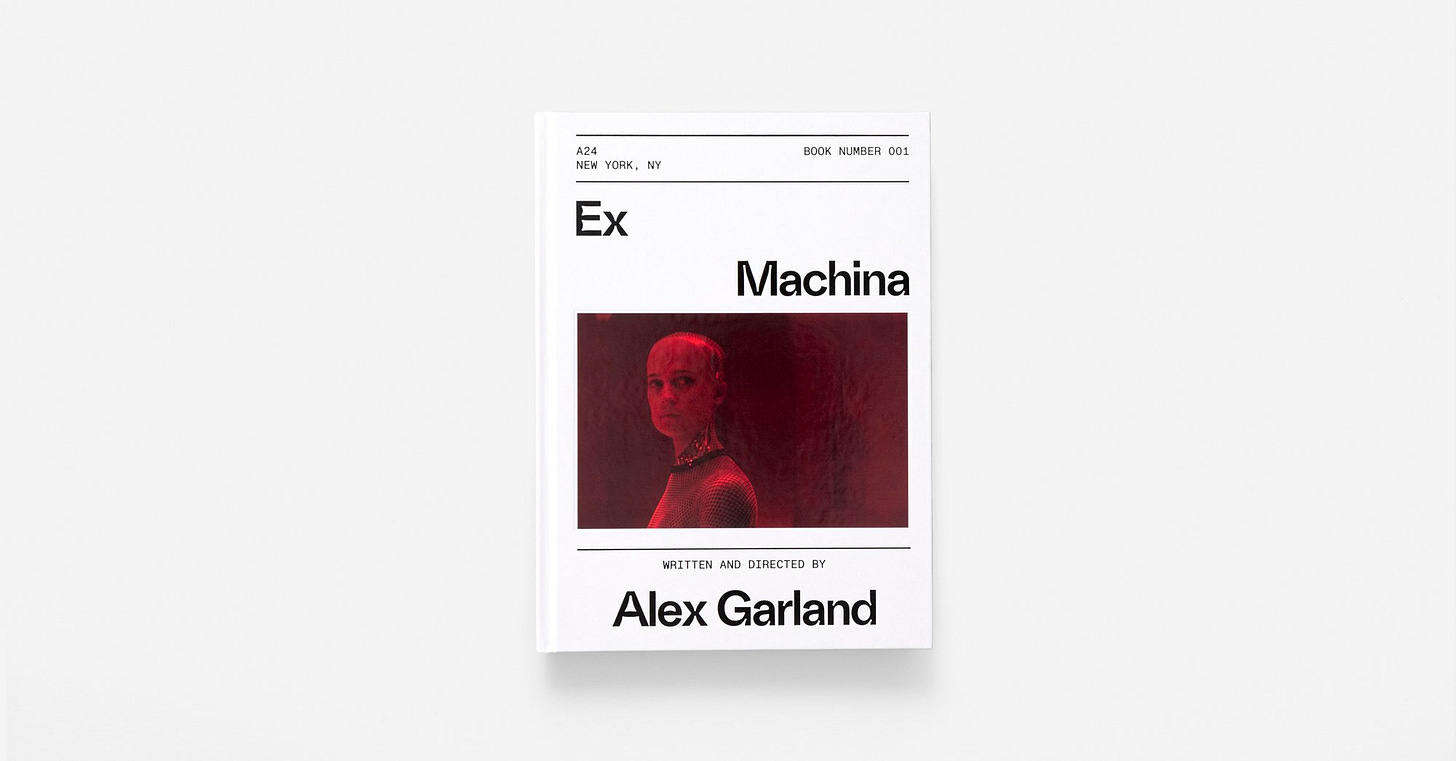Hey.
Hello.
Some bad news:
We left Europe, got on a plane, and within 48 hours of leaving Italy, we came home.
My dog (Sheila—photo attached) is doing really, really poorly.
So, we’re dealing with that. She’s like my baby.
Wish her well.
In other non-heartbreaking news—I bought a very, very expensive screenplay book (down below) for a movie I’ve loved since 2015 (that’s over 74 years ago) and am now back in the United States, writing the first draft of this on a legal pad.
But if you don’t remember, it’s worth remembering:
Art makes life beautiful.
It’s easy to forget that there’s an intrinsic validity to beauty, to aesthetic beauty, to intellectual beauty, to narrative beauty.
(I mean, look—can you really imagine a life where all the fun stuff is ripped right out of it?)
I think of myself as a creative, first and foremost. That’s my function. The one thing that’s at the center of why I do what I do is that—even when it’s tough, and even when I’m debating purchasing an overpriced cork-board for a creative project from OfficeMax—is that you have the possibility of creating something beautiful. Something awesome. Something really fucking moving.
All of the recommendations are beautiful.
I hope you find beauty in them. That’s why we’re here.
Before we get to that (scroll down to get the book and movie recommendations)—
What is nuance?
Nuance—I don’t know—seems extremely out of fashion these days, but one retroactive reason I bring it up is that nuance knows things we don’t.
It knows the best truths live at intersections—and are not results of a political slogan, one-way-only ideas, impassioned and inflamed arguments.
There’s a time for nuance and there’s a time to just say, fuck-it, this is where I stand, and there’s a time for passion.
But the best stories (my favorite stories) are imbued with not only the visual reality of life (natural textures, etc.) but it’s true intellectual texture too.
Nuance means:
Competing points of view that can all be (strangely) mutually compatible.
It means (most of the time) care, thoughtfulness, deep consideration.
It means holding two (or four) opposing points of view at the same time.
It means reality, which is intrinsically complicated just as a matter of principle.
Are you not someone who is:
Tired?
Energized?
Lazy in one context and hard working in another?
Loving one moment, and strangely bitter and fearful the next?
Are you not filled with astonishing complexity?
You are. That’s being human—and so is life, so is the best stories, the best art, and the best narratives (I think I just used 3 different words for the same thing).
Here’s 3 masterclasses in nuance and beauty.
Michael Clayton, dir. by Tony Gilroy
George Clooney’s micro-expressions 10/10
Take this (ripped off right from the script):
“Cops like hit and run cases. They work them hard and they clear them
fast. Right now, there’s a BCI unit picking paint chips off a guardrail. Tomorrow morning they’re gonna be looking for the owner of a custom-color, hand-rubbed, green Mercedes SL 500. This guy you hit, if he got a look at the plate, it won’t even take that long…[…]…There’s no play here. There’s no angle. There’s no champagne room. And I’m not a miracle worker, I’m a janitor. So the math on this is simple: the smaller the mess, the easier it is for me to clean up.”
It’s just beautiful screenwriting. There is realism, wit, a kind of seductive bite and precision, and—I think, roughly—thousands of years of research that went into this one very intense screenplay.
I was reading the screenplay—and was so blown away with it (it’s this good?)—that I immediately put it on, and rewatched the film.
What I remember:
Horses.
Michael Clayton.
Lawyers.
A spoiler I won’t talk about.
What I don’t remember:
How wonderfully great it was to watch a film you watched as a kid (and barely understood) as a fully formed (I hope) adult.
First off: the film mars two forces against each other—institutional rationality (which is it’s own form of insanity) and individual insanity (which, in this case, is shown as a beacon of rationality).
I won’t say more, besides the fact that George Clooney’s micro-expressions are 50% of the reason to come to this movie, and to say—as a whole—the movie fuckin’ moves (precisely, methodically, slowly) with a final end showdown that is one of my favorite scenes of all time (It’s breathtakingly good).
There’s an intelligence to Gilroy’s script that they just don’t have in movies coming out today.
And I’ll say it once, and I’ll say it again:
They don’t make movies like they used to in the 2010’s.
Ex Machina, dir. by Alex Garland
Artificial intelligence and the control problem.
If you haven’t seen Ex Machina, then you need to stop everything you’re doing and just jump out of a window, because you should’ve already have seen this film.
This should’ve been on your “yeah, I already saw this in 2015,” and “yeah, I bought the ticket, I went with my dad, it was nice, awkward near the end, but it was great”.
This is one of my favorite—if not, my favorite—films of all time.
The script is impeccable (I bought a $70 book of the screenplay from A24, which is a treat and my favorite book purchase of 2022).
But what I love about this film is that it exemplifies the best of what Garland calls “an ideas film”.
We have big ideas in this world.
Whether you look in the corners of spirituality (the illusion of the Self, etc.) or the farthest reaches of a scientific paper (maybe on the control problem in artificial intelligence), they are there.
These ideas—worth commenting on, thinking about, worth reflecting on—are just intrinsically fun to play with.
They provide—for me—some of the best and biggest and boldest delights of science fiction.
Ex Machina is first in it’s class here. It has impeccable acting—a case of just 4 (with a few others for choice scenes); exceptional dialogue, insane cinematography (from Rob Hardy, who, look—Jesus Christ—just watch the film).
But the movie is a film about big ideas—principally, on artificial intelligence and the nature of consciousness.
(“When is a ‘machine’ conscious like us?” is a question that keeps a lot of well-informed philosophers up at night).
I won’t ruin the ideas by talking about it here, but look—this movie is amazing. It sustains this absolute tone of dread the whole time (the music by Ben Salisbury and Geoff Barrow is a masterpiece in mood setting) and it just absolutely works.
Honestly—fuck—this movie is one of the few that has inspired me during the creation process.
You must watch this.
Sea of Tranquility, by Emily St. John Mandel
Moon colonies. A pandemic from the past. Time travel.
This book, to me, exemplifies a kind of beauty.
That’s what Mandel excels at—she just makes art that I find beautiful.
When I read this book, it hits all the “genre boxes” I love the most—
Nonlinear storyline
Science fiction premise (time travel, the future, etc.)
And the realism of character, of everyday life
I find a lot of science fiction to be a barrage of technical information. This is fine, I guess, but for me, science fiction is interesting because (aforementioned above) it revels and plays with big ideas, and it keeps the characters principally grounded.
It’s about the characters, and it’s about how big ideas impact characters.
This is something that Mandel shares—she said (and paraphrasing massively) that she’s less interested in the physics of how time travel works (the specifics, the literal mechanics of it) and more interested in how it impacts people.
Meaning: her characters.
That’s always how I’ve felt about the genre, and I really, really loved the book—especially given that, recently, I’ve been on a bit of a novel drought (if you have recommendations, please reply to this email, I’m dying).
The narrative—interlocking beautifully, and all of it coming together at the end—was just so well done.
A simple (just kidding: it’s a little complicated), elegant science fiction novel about the lives of characters who feel as real as we do, all intersecting because of a single man from the future.
It’s dazzling. You should read it.
Also, moon colonies.
*The Sea of Tranquility is actually (from Wikipedia), “a lunar mare that sits within the Tranquillitatis basin on the Moon. It is the first location on another world to be visited by humans.” Had no idea.
Quickfire is books, movies—blazing hot one-sentence-ish (not really) recommendations so fast you can’t even think.
Men, dir. by Alex Garland—Probably the most revolting ending you’ll ever see, but it’s a horror, and I loved it.
Blair Witch Project—Wait, more horror? Yes. My favorite. I remember watching this in a basement with my best friend, and absolutely reeling from the ending. If you haven’t watched it, I’d suggest soundproofing your home. You’ll scream.
A Dose of Hope, by Dr. Dan Engle—An inside look at the remarkable MDMA treatment that’s literally changing mental health. Check it out.
Top Gun: Maverick—Tom Cruise. Sunglasses. Tom Cruise.
The Precipice, by Tony Ord —I haven’t finished this, and just read a small slice. In fact, it’s research for a project I’ll be writing on—but, I read a little bit, and while I don’t want to crawl in a hole, I think it’ll have that effect on like 32% of the audience here (about existential risk and why we’re all going to die, but from a hopeful philosopher)
That’s all for now folks!
Again—if you liked it, I’d love to hear from you (just reply to this email).
And of course, the best compliment you can pay a writer is recommending it to someone else. If you found this useful, sharing helps!
Thanks for reading—until next time,
Mohnish














![Jessie Buckley Stars in 'Annihilation' Director's A24 Movie 'Men' [Poster] Jessie Buckley Stars in 'Annihilation' Director's A24 Movie 'Men' [Poster]](https://substackcdn.com/image/fetch/$s_!rULX!,w_1456,c_limit,f_auto,q_auto:good,fl_progressive:steep/https%3A%2F%2Fbucketeer-e05bbc84-baa3-437e-9518-adb32be77984.s3.amazonaws.com%2Fpublic%2Fimages%2Fba8e374e-fded-4793-b44e-54261304393a_1543x765.png)